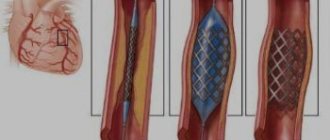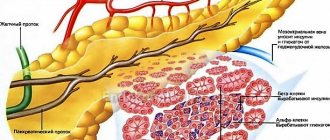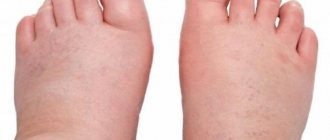Norms for TSH
It is important to remember that TSH fluctuations are especially individual for each person at different ages.
Therefore, an accurate interpretation of TSH tests (resolving the issue of whether TSH is low or increased) should only be carried out by a medical specialist. On average, the norm for TSH levels in adults is 0.23-4.90 mIU/l. For children aged 7-12 years, the TSH norm, on average, is in the range of 0.61-5.20 mU/l. For children under 6 years of age, the TSH norm ranges from 0.45-3.6 mU/l.
The average value and norm of TSH during pregnancy is 0.2-3.5 mU/l. In pregnant women, during some periods, it is considered normal when the TSH level is elevated to 5.6 mU/L.
Why is TSH low?
A decrease in TSH concentration in the blood may indicate:
• Deterioration of the pituitary gland function – after brain injuries, with hereditary diseases, infections, after severe bleeding;
• Hypothyroidism is a deterioration in the normal functioning and function of the thyroid gland, which may be associated with a tumor, iodine deficiency, protein deficiency, heredity, exposure to radiation and other reasons;
• Psychological stress;
• Abuse of thyroid hormones;
• Sheehan syndrome – partial death of cells in the pituitary gland in women after childbirth.
Causes of increased thyroid-stimulating hormone
Changes in the direction of increasing TSH levels may be associated with:
- with a benign neoplasm in the pituitary gland – thyrotropinoma;
- adenoma in the anterior pituitary gland;
- syndrome of resistance to hormonal elements of the thyroid gland;
- irregular production of thyrotropin;
- juvenile hypothyroidism, other formations in the pituitary gland;
- subacute thyroiditis;
- chronic pathologies, including mental illnesses;
- removal of the gallbladder, lead intoxication;
- excessive physical activity, hemodialysis procedures;
- preeclampsia.
The element may increase during therapy with certain medications:
- anticonvulsant action - during treatment with Benserazide, Phenytoin;
- beta blockers - Atenolol, Metaprolol;
- Morphine, Prednisone, Rimphapicin.
A similar deviation occurs during therapeutic procedures using iodides and Calcitonin.
When is a TSH test needed?
An analysis to determine TSH norms is needed in the following cases:
• Suspicion of hypofunction of the thyroid gland - lethargy, drowsiness, dry skin, constipation, chilliness, etc. An examination can help understand the cause of decreased function (to distinguish pathology of the thyroid gland from pathology of the pituitary gland);
• Suspicion of hyperfunction of the thyroid gland – a feeling of arrhythmia and tachycardia, diarrhea, nervousness, insomnia, menstrual irregularities, feeling of heat, weight loss, protrusion of the eyeballs from the orbits, etc.;
• Monitoring the results of treatment after removal of the thyroid gland (partial or complete);
• Monitoring the results of hormone replacement therapy for glandular diseases;
• Autoimmune diseases of the thyroid gland and control of their treatment;
• Diagnosis of suspected congenital hypothyroidism in a newborn.
Thyrotoxicosis (hyperthyroidism) - symptoms and treatment
In the treatment of thyrotoxicosis, the following basic methods are usually used:
- conservative drug treatment with thyreostatic drugs;
- radioactive iodine therapy (I 131);
- surgery;
- non-drug treatment (limiting physical activity, healthy sleep, quitting smoking, preventing stress).[5][11][12]
The fight against the syndrome involves eliminating the clinical manifestations of thyrotoxicosis with normalization of T3, T4 and TSH values and achieving stable remission of the disease.
Conservative therapy
In the conservative treatment of diffuse toxic goiter in patients with a moderately enlarged thyroid gland (up to 40 ml), propylthiouracil (PTU) or thiamazole (Tirozol or Mercazolil) is prescribed. This helps to achieve normal functioning of the affected organ. In case of diagnosed cases of diffuse toxic goiter in the first trimester of pregnancy and the occurrence of side effects while taking thiamazole, PTU is prescribed. As a result of treatment, after 4-6 weeks there is an improvement - the level of free T4 is normalized. Additionally, beta-blockers are prescribed according to indications (for example, 2.5-5 mg of Concor per day).
In severe cases, it is recommended to take glucocorticoids - up to 10-15 mg of prednisolone per day. Then, over 2-3 weeks, the dose of the thyreostatic agent is reduced to a maintenance dose (no more than 10 mg per day). In parallel, the patient is usually prescribed 50 mcg of levothyroxine per day. This treatment regimen is called “Block and Replace.”[3][6][7][10][12] Stable maintenance of normal levels of free T4 and TSH will indicate the adequacy of the prescribed therapy.
If there are persistent side effects of the prescribed treatment, thyreostatic drugs are canceled, radioactive iodine therapy or surgery is prescribed. In case of relapse of thyrotoxicosis, the question arises about the need for radioiodine therapy or thyroidectomy - complete or partial removal of the thyroid gland.[5][12]
Treatment with radioactive iodine
Radioiodine therapy for diffuse toxic goiter is carried out in case of persistent relapse of thyrotoxicosis after the end of properly administered conservative therapy (for 12-18 months) and difficulties in taking thyreostatic drugs (decrease in the number of leukocytes in the blood or the occurrence of allergic reactions).
Treatment with radioactive iodine is carried out in specialized centers with radiation and environmental safety for people and nature. The only contraindications for this therapy are pregnancy and breastfeeding.
The goal of radioiodine therapy in destroying hyperfunctioning thyroid tissue is to achieve a stable hypothyroid state.[3][6][7][10][12]
Surgical treatment
Surgical intervention for diffuse toxic goiter is necessary if the goiter is located behind the sternum, with diffuse and nodular forms of goiter with compression and the patient refuses other methods of therapy. Total and subtotal thyroidectomy are the treatment of choice. If there is a nodular formation in the thyroid gland, it is necessary to perform a puncture biopsy and diagnostic cytological examination.[4][5][12]
After the operation, levothyroxine preparations (Euthyrox, L-thyroxine) are prescribed at the rate of 1.7 mcg per kg of the patient’s weight. TSH determination is carried out 6-8 weeks after surgical treatment and over time.
Treatment of diffuse toxic goiter with concomitant endocrine ophthalmopathy is preferably carried out using the “Block and Replace” scheme.[5][10][12]
In the case of thyrotoxicosis with a TSH-secreting pituitary tumor (thyrotropinoma), the TSH level is diagnosed taking into account the levels of free T3 and T4, as well as MRI (as a result, a pituitary adenoma is usually detected). Such patients require surgical intervention.[3][6][7][10][12]
How often do you need to get tested for TSH, who and where?
TSH analysis is especially important for children and women when planning pregnancy, as well as during it. Any suspicion of hormonal disorders associated with the thyroid gland requires testing using hormone tests, including TSH.
It is imperative to monitor TSH for those who have already had problems with the thyroid gland before. According to the recommendation of the American College of Physicians, TSH testing should be done regularly for all women over 50 years of age, since this is a risk group for hormonal disorders due to the onset of hormonal changes in the body (entry into menopause).
You can get tested for TSH in almost any clinic or laboratory. However, only at LAB4U the affordable price of a TSH blood test is combined with high quality and accurate results.
Why take a TSH (thyroid-stimulating hormone) test?
Other names : Thyroid-stimulating hormone, thyrotropin, Thyroid-stimulating Hormone (TSH), Thyrotropin.
The thyroid gland is small and butterfly shaped. It produces hormones (thyroxine, triiodothyronine) that play an important role in regulating normal growth, development, metabolism, body temperature and blood flow. Thyroid hormones also influence the metabolism of fats, proteins and carbohydrates, maintaining fluid and electrolyte balance, muscle strength and emotional status.
TSH is produced by the pituitary gland, a gland in the brain that is located in a bony pocket called the sella turcica and controls the functioning of the thyroid gland. When the level of thyroid hormones in the body is low, the pituitary gland produces more TSH. Conversely, when thyroid hormone levels are high, the pituitary gland produces less TSH.
TSH levels that are too high or too low may indicate that the thyroid gland is not working properly.
You may need a TSH if you have symptoms of too much thyroid hormone in your blood (hyperthyroidism) or too little thyroid hormone (hypothyroidism).
Symptoms of hyperthyroidism : anxiety, fussiness, weight loss, trembling of the body and fingers, increased heart rate, irregular heart rhythm, bulging eyes, poor sleep, irritability, increased sweating, heat intolerance, frequent loose stools, swelling of the feet, muscle weakness, menstrual irregularities cycle, up to amenorrhea.
Symptoms of hypothyroidism: weight gain, decreased heart rate, shortness of breath when walking, chilliness, increased fatigue, slow speech, decreased mood, hair loss, brittle nails, dry skin, nausea, constipation, facial swelling, menstrual irregularities in women.
How to interpret the results of a TSH test
A high TSH level may indicate that the thyroid gland is not producing enough thyroid hormones (hypothyroidism).
Level up:
- primary hypothyroidism;
- Hashimoto's thyroiditis;
- TSH - secreting tumor of the pituitary gland;
- intense physical activity;
- adrenal insufficiency;
- gestosis of pregnant women.
Low TSH levels may mean that the thyroid gland is producing too much thyroid hormone (hyperthyroidism or thyrotoxicosis). If the body does not produce enough TSH, proliferation occurs - the growth of thyroid tissue. The thyroid gland increases in size, this condition is called goiter.
Level downgrades:
- diffuse toxic goiter;
- TSH-independent thyrotoxicosis;
- thyrotoxic adenoma (Plummer's disease);
- transient thyrotoxicosis of pregnant women;
- mental illness;
- emotional stress;
- starvation.
The TSH test does not explain why TSH levels are too high or too low. If the test results are different from the norm, then additional tests must be performed to determine the cause of this condition.
As additional studies, the levels of free fractions of thyroxine (free T4) and triiodothyronine (free T3) are most often determined.
To confirm autoimmune thyrotoxicosis (Graves' disease), the level of antibodies to the TSH receptor is examined.
To diagnose hypothyroidism of autoimmune origin (Hashimoto's disease), the levels of antibodies to thyroid peroxidase (TPO) or antibodies to thyroglobulin (TG) are examined.
What else you need to know about the TSH test
Changes in the functional state of the thyroid gland can occur during pregnancy. These changes are usually minor, but some women may develop thyroid disease. Hyperthyroidism occurs in about one in 500 pregnant women, while hypothyroidism is more common, affecting about one in 250 pregnant women.
Both hyperthyroidism and hypothyroidism can persist after pregnancy. If thyroid function is impaired during pregnancy, it must be monitored after the birth of the child.
If you are pregnant or planning to become pregnant and have a family history or family history of thyroid disease, be sure to consult with your healthcare provider.
It is also important to know that the level of TSH in the blood can fluctuate depending on the time of day: at 2–4 o’clock in the morning the level of this hormone is very high, while the minimum level is around 17–18 o’clock in the evening.
To get an accurate value, a TSH test must be taken in the morning on an empty stomach. The day before, you should stop smoking, drinking alcohol, eating large meals, and you should also avoid physical and emotional stress.
Method: electrochemiluminescence immunotest
Analyzer : Cobas 6000
Units: µIU/ml
Material for research: venous blood serum
Preparation for TSH:
- Take on an empty stomach (after sleep and 8-12 hours of fasting). It is permissible to drink only clean non-carbonated water (up to 200 ml) (with the exception of glucose testing).
- Do not consume spicy, fatty, fried foods or alcohol 1-2 days before the test.
- Avoid physical and emotional stress 1 day before the test.
- Do not smoke for at least 1 hour before the test.
- It is not recommended to take it after X-rays, physiotherapeutic procedures and instrumental examinations.
- On the morning of the test, skip taking thyroid medications and take it after donating blood.
Interpretation of results (transcript)
The result of laboratory tests is not a sufficient basis for making a diagnosis. Interpretation of the results and diagnosis is carried out only by the attending physician.
Reference values:
| Children from 0 to 12 months | 0,73–8,35 |
| Children from 12 months to 6 years | 0,7–5,97 |
| Children from 6 to 11 years old | 0,6–4,84 |
| Children from 11 to 16 years old | 0,51–4,3 |
| Adults over 17 years old | 0,27–4,2 |
Factors influencing the result:
Promotion:
- taking medications - anticonvulsants (valproic acid), beta-blockers (atenolol), amiodorone, antipsychotics, clomiphene, furosemide, morphine, prednisolone, radiocontrast agents, oral contraceptives, etc.
Demotion:
- taking medications: corticosteroids, anabolic steroids, cytostatics, beta-adrenergic agonists (dobutamine, dopexamine), dopamine, thyroxine, triiodothyronine, nifedipine, drugs for the treatment of hyperprolactinemia (metergoline, peribedil, bromocriptine), carbamazepine, somatostatin and octreotide, etc.
Where to get tested for TSH
You can take a blood test for TSH at any Synevo point in Minsk, Baranovichi, Bobruisk, Borisov, Brest, Vitebsk, Gantsevichi, Gomel, Grodno, Zhlobin, Lida, Mogilev, Mozyr, Molodechno, Novogrudok, Novopolotsk, Orsha, Pinsk, Polotsk, Rechitsa , Svetlogorsk, Slutsk, Smorgon, Soligorsk.









